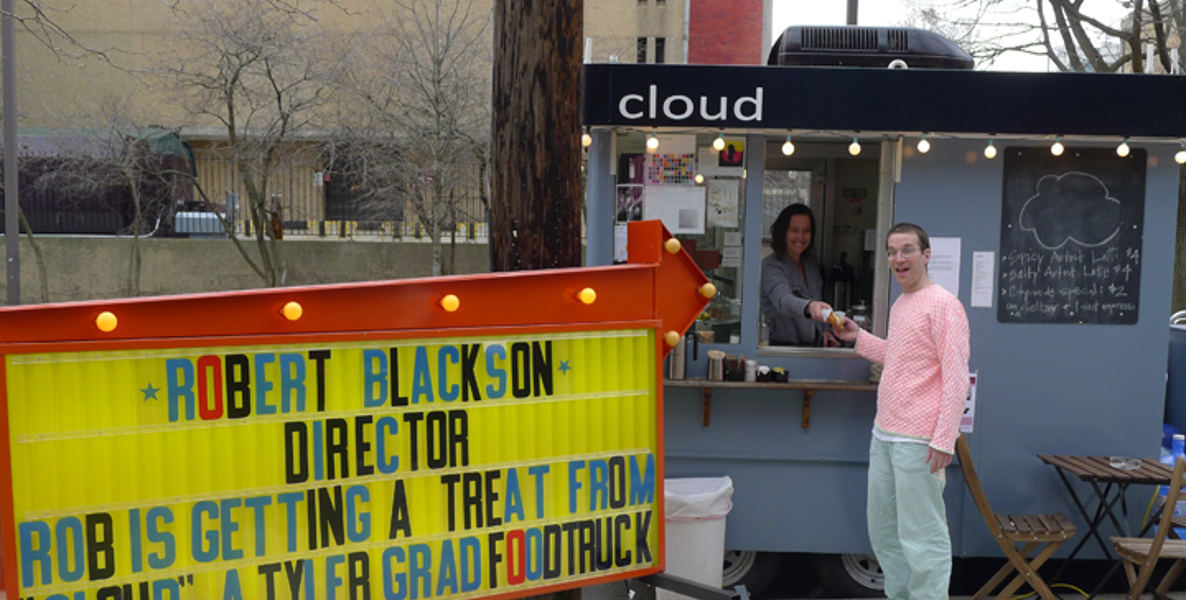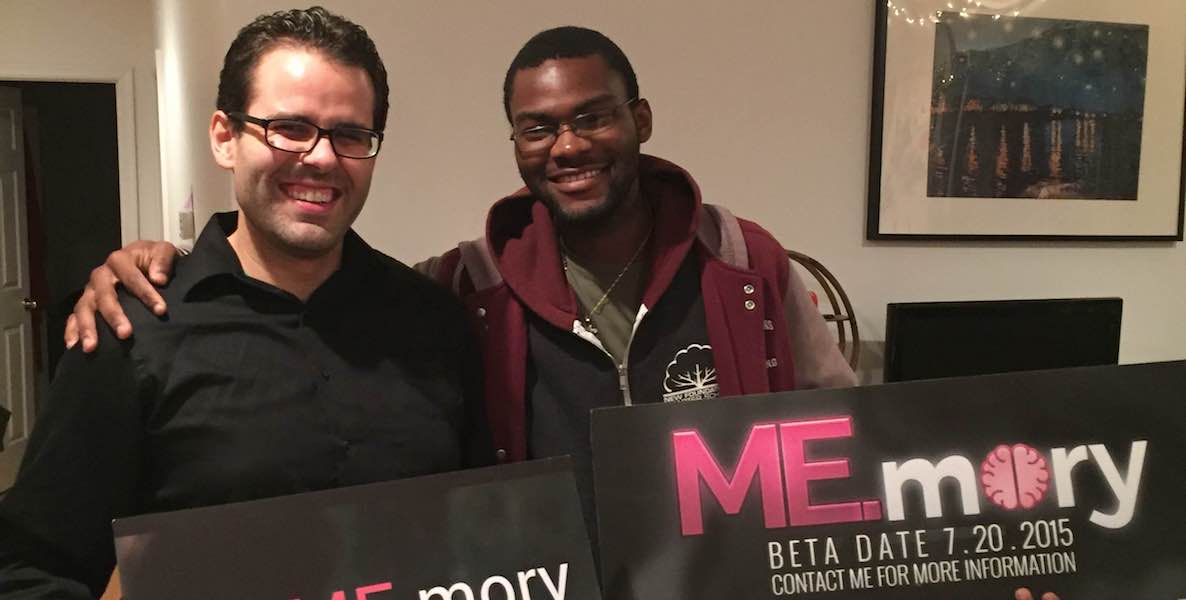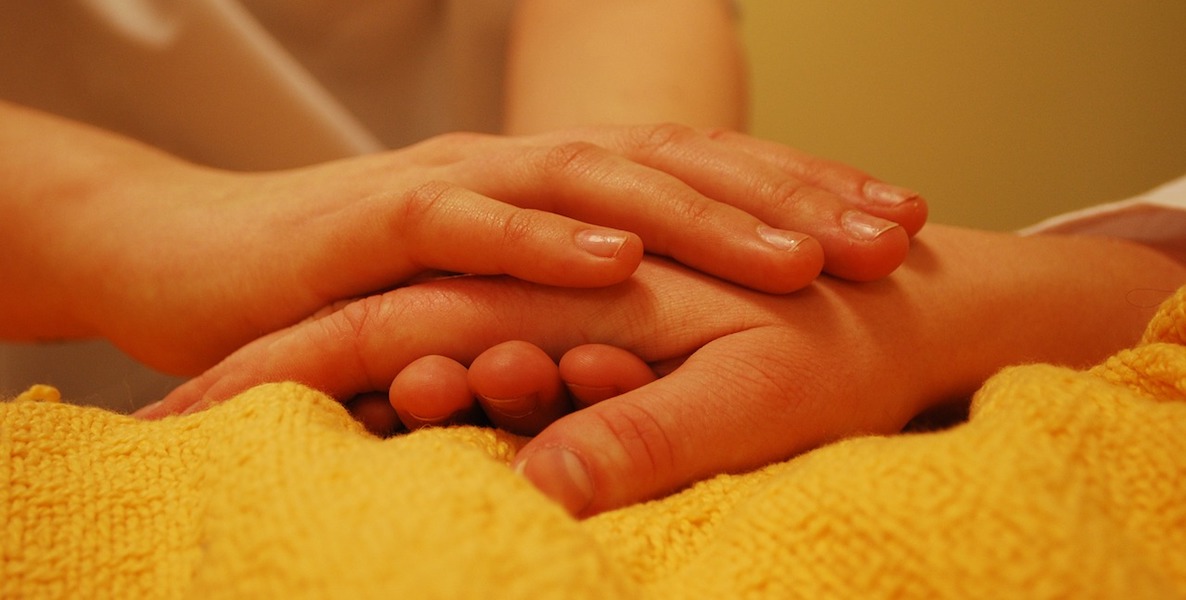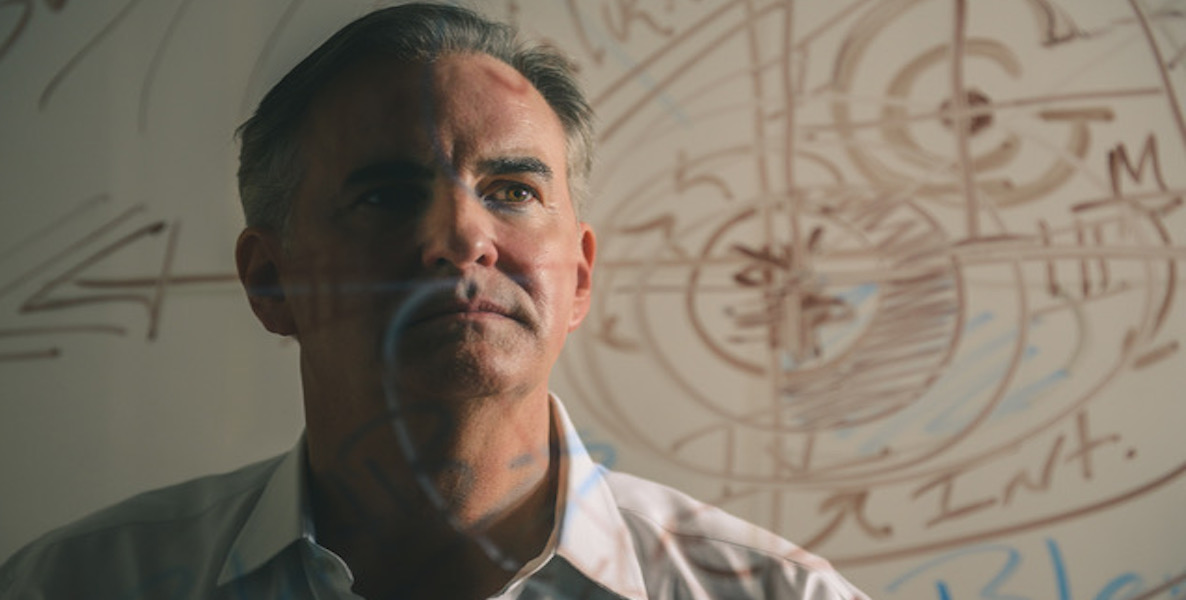Jane Meier Hamilton started her career as a nurse more than 40 years ago, and loved it. But about 30 years ago, something happened that led her to reevaluate her role as a caregiver: Her husband suffered a serious back injury, and was in agony, only a week after she gave birth to her son.
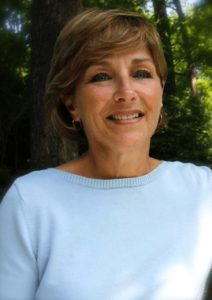
That meant Meier Hamilton had to pull double duty as a caregiver—working as a nurse full time, then taking care of her husband while he recovered from his injury for an extended period. She was increasingly exhausted——and frustrated with the state of the American health care system. She felt as though she needed the kind of support that she was providing to both her husband and her patients. But where would that come from?
“It was the first time I experienced being a caretaker in my own household, and I realized that there is a difference between the professional role of caregiver and the family role of caregiver—because at the end of the day the caregiver goes home and hands his or her patients over to another professional who takes over,” Meier Hamilton says. “When you’re a family caregiver, that concern carries on night and day.”
Started in 2008, Partners on the Path was among the first cohort of Good Company, the nonprofit Philadelphia accelerator more known for helping boot up environmentally-conscious businesses. But Meier Hamilton was a disruptor in her own right, working to solve an issue that virtually nobody had tackled yet.
It was this frustration—and the opportunity it presented—that led Meier Hamilton to develop the programming for Partners on the Path, a company that advises family caregivers on how to take care of themselves, to avoid not only burnout, but also what Meier Hamilton calls “emotional fatigue.”
Started in 2008, Partners on the Path was among the first cohort of Good Company, the nonprofit Philadelphia accelerator more known for helping boot up environmentally-conscious businesses than mental wellness advisory groups. But Meier Hamilton was a disruptor in her own right, working to solve an issue that virtually nobody had tackled yet, and that even today, no other organization has as its central focus.
Nine years later, the company is the national caregiver consultant for CVS Pharmacy, and has worked with groups including the Elizabeth Dole Foundation, the Visiting Nurse Association Hospice of Philadelphia and the National Stroke Association. It has been profitable since 2015, primarily because of its association with CVS, for which it is helping create a CVS-branded approach to caregiver support.
Simply put, Partners on the Path helps caregivers give care to themselves—particularly those family caregivers who don’t have another network to turn to for counseling. This isn’t an easy concept for some. One of the biggest challenges, Meier Hamilton says, is just getting caregivers to consider themselves in need of care. Some are even insulted: How dare you add me to the list of people I need to care for? But Meier Hamilton says that increasingly, individuals and organizations are opening up to the benefits of providing specific guidance on how to balance care of others, with care of self.
The for-profit company has three audiences: family caregivers, professional caregiver networks and employers. Family caregivers can access the services old-school—with a book and series of videos written by Meier Hamilton—or they can go to the company website for videos addressing issues like stress, anxiety and other common mental health concerns; access to counseling seminars; and to read simple but lifesaving guidelines for mentally and physically taking care of themselves—things like simplifying your life, facing reality, making healthy choices and asking help from others.
With the Caregiver Action Network (CAN), a family caregiver organization, Partners on the Path created an online portal to help caregivers with one-on-one or pre-taped support and advice. And together, they have launched a program for employers, to help them manage workers who have caretaking responsibilities at home.
Compassion fatigue, sometimes called caregiver fatigue, isn’t simply getting worn out from the admittedly-astonishing work some family caregivers do, nor is it normal burnout—the kind of thing that can be slowed down by a well-placed vacation or Xanax or a career change. It’s one of the most dangerous aspects of being a family caregiver: As the intensity of the care being provided increases—and it often does—so does the chance that the caregiver will become emotionally fatigued to the point where they offer less intensive, interested and careful care to the person they’re taking care of.
And it’s a growing problem. Over 18 million Americans work in healthcare, including nearly 3 million registered nurses. This number is expected to grow nearly 20 percent by 2024, accounting for almost a quarter of all new jobs created, more than in any other industry. Meanwhile, some 65 million Americans are family caregivers, for elderly parents, special needs children or disabled relatives. All of these people risk suffering compassion fatigue, as do first responders, like firefighters and police. Up to 40 percent of intensive care workers suffer from compassion fatigue, as do up to 70 percent of mental health professionals.
Over 18 million Americans work in healthcare, including nearly 3 million registered nurses. This number is expected to grow nearly 20 percent by 2024. Meanwhile, some 65 million Americans are family caregivers, for elderly parents, special needs children or disabled relatives. All of these people risk suffering compassion fatigue.
All of this isn’t some new-fangled, hippy-dippy excuse for a decline in care quality. Even Mother Teresa mandated that her nuns and Calcutta take a year off every half-decade to avoid burnout affecting them too deeply. But the notion of “compassion fatigue” is relatively new—so new that the National Alliance for Caregiving, one of the leading caregiver advocacy groups in the U.S., doesn’t even track statistics on it. This may be why, though there are a handful of support organizations for caregivers, like Caregiver Action Network, Partners on the Path is the only one that focuses primarily on this issue.
“The model developed by Partners on the Path on how to get through compassion fatigue and build caregiver resilience is one of the best I have seen anywhere,” says CAN CEO John Schall.
Meier Hamilton can’t properly estimate how many thousands of people have interfaced with Partners on the Path online or via its books and videos; but she says that she’s presided over north of 3,000 seminars and keynote addresses across the country. Currently, the company is focused on expanding its joint program with CAN, called ACE, an online resource licensed by businesses to help them help their employees who are also caring for family members.
For Meier Hamilton, the business is personal. Like so many Americans, her experience with raising a newborn and taking care of an injured husband was far from her last tour of duty when it came to working as a family caretaker. Her mother developed Parkinson’s and dementia and her father was legally blind and had a pulmonary disease; her mother-in-law had a stroke and her father-in-law developed cancer. Meier Hamilton put in time caring for each of them.
“Compassion fatigue is being exposed to the traumatic and painful experiences of those for whom I’m caring, and then interjecting it, or taking it in, and feeling that I can’t get away from thinking about or being affected by that trauma,” says Meier Hamilton. “It changed me, ultimately.”
Correction: A previous version of this story incorrectly described the Caregiver Action Network. It is a family caregiver organization.




